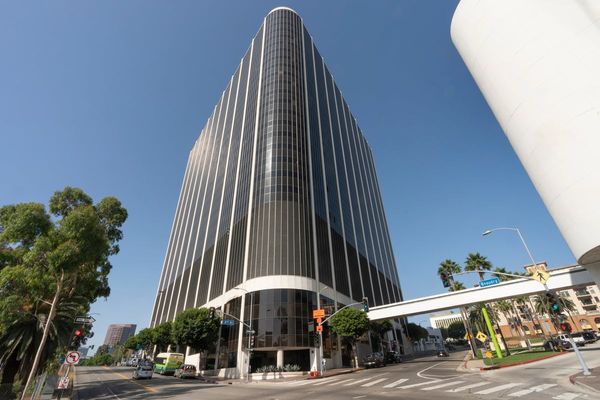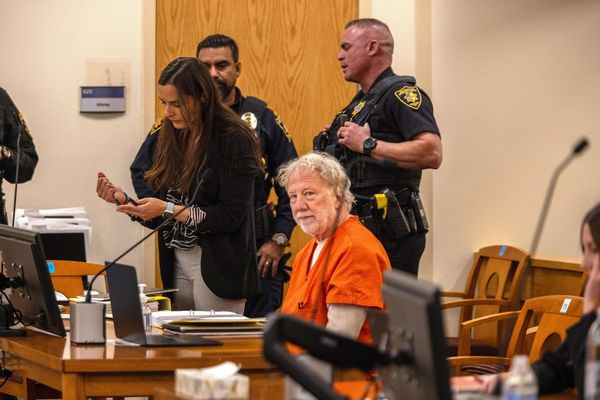
“It must be cancer. Just look at her face and hair.”
Even knowing that she meant well, I stopped my friend from speculating about his aunt.
“It’s best not to guess,” I said lightly. “People will tell you when they want.”
The next day King Charles announced to the whole world that he had gone into hospital for prostate surgery and emerged with a cancer diagnosis – one reason doctors should be loth to attach the prefix “routine” to any procedure. The details are sparse: his cancer is unspecified, he has begun treatment and retreated from public duties.
When Angelina Jolie revealed her deleterious genetic mutation, leading to the prophylactic removal of her breasts and ovaries, patients flocked in with their questions. Could they have the gene? How might they get tested? What did it mean for their offspring? Noting the ubiquitous headlines and “analysis” about the king’s diagnosis, I wondered how my patients would react. So far, not a word.
For my patients, life continues to unfold in all its enormity and mundanity. Parking is hard to find, specialists even harder. Tracking appointments is a full-time job. Absorbing good news and swallowing bad news – and having the stomach for both at every visit – demands equanimity. Then, beyond the heavy logistics, there is the sheer emotional fatigue of carrying a diagnosis that everyone feels entitled to weigh in on.
I work in an area of stark socioeconomic disadvantage. Many of my patients are not just from the other side of the tracks, they may as well live on another planet. They lack language and money but, most of all, they lack agency. They are the sort of people who die waiting to figure out how to ask for help. My patients are as removed from royalty as you can imagine and yet I can’t help thinking that, in their core experiences, they might not be all that different.
The initial shock of a cancer diagnosis takes the wind out of everyone’s sails. What will I do now? Did I ignore the signs? What does my future hold? It doesn’t help that the usual narrative about cancer takes two forms: miracles and disasters. Either people defy the statistics or face an abject death. Of course, the truth lies in between: many cancer experiences have been transformed through modern medicine, agile technology and compassionate palliation. But surrounded by well-wishers, my patients describe feeling alone in the moment of discovery; they know that the weightiest implications will be theirs to negotiate in the silences between the noise.
Power and wealth undoubtedly buy access. Every waitlisted patient (and their powerless oncologist) is entitled to a twinge of envy when someone begins treatment straight after diagnosis. For some people, doctors and institutions spare no effort but still, privilege can’t grant clemency from fears. The leader petrified about incontinence. The commander who quails at vomit. The boss felled by brain fog. And even when side effects are controlled, the era of frequent imaging has given rise to the vexed problem of “scanxiety”. Patients live from scan to scan and it takes a superhuman effort to suspend worry.
I phoned a patient 20 minutes late with the reassurance that she remained in remission. I shouldn’t have been surprised that she had slept poorly since the night before the scan. Recognising how every added delay on my part must have exacerbated the tension, I apologised. Then I felt bad when she said she better call all the people keeping anxious vigil by their phone. The domino effect of a cancer diagnosis is real.
Unlike any other illness I can think of, cancer is a communal diagnosis. The flipside of a flood of sympathy is a tsunami of advice. Try this; eat that; go here; look there. Last week a patient arrived drenched in a herbal potion promoted as cure. This week a patient asked if he should starve himself to starve the cancer (please, no). A lot of unsolicited advice is astonishingly bad but, still, it exacts bandwidth. Patients deserve better.
Ironically, some of society’s sickest patients face the greatest pressure to make the well among us feel better. So, while their public-facing side valorises positivity and “beating” cancer, inside they are scared and unsettled, as anyone would be. Cancer is synonymous with uncertainty; true success involves treating the body and mind. I rue how little we do of the latter. Patients explain that the way to help is to neither demand optimism nor let them drown in pessimism. Like so much in life, our response to those who have cancer requires moderation.
Oncologists like me take pains to soothe patients by stressing that every cancer is different, and every person is different. We do this to tailor treatment and temper expectations. But if there is one (near) universal truth it is this.
Whether treated, cured, palliated or somewhere in between, everyone wants human connection. Even the grumpy patients who scold us to “let me be” and especially the proud ones who insist they are “just fine”. There is a distinction between needing space and being alone – no one who is alone is truly fine.
In times of existential threat, expert professionals and loyal friends are a godsend but the yearning to embrace, and be embraced by, family is visceral. This is why, at the bedside of my patients, I watch former spouses exhibit grace and estranged children file in. In-laws and grandchildren make up for lost time with acts of care and reconciliation born of the realisation that late is better than never.
I know it doesn’t always happen this way but when it does, the juxtaposition of mortality and love is profound and affecting and makes me want this for all my patients.
Goethe philosophised: “He is happiest, be he king or peasant, who finds peace in his home.”
For King Charles, as for every patient facing cancer, this ought to be our heartfelt wish.
• Ranjana Srivastava is an Australian oncologist, award-winning author and Fulbright scholar. Her latest book is called A Better Death







